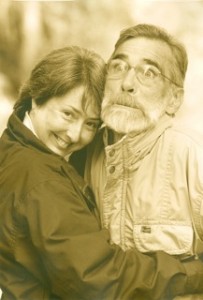I dislike that phrase.
It makes me uncomfortable.
Because it’s new. And it’s dissonant. Normal should feel comfortable, because, well, it’s normal. But New Normal is new. And new can be fresh and shiny and invigorating. And – Or – it can be scary and uncomfortable. Like new shoes that haven’t quite been broken in yet. Like a room full of faces I haven’t met yet. Like a room full of faces with one important face missing.
It is better than the chaos out of which it has settled.
It is a soft (hopefully) landing for the other shoe when it drops.
It is landing in Oz, which is better than the tornado, but is still new and full of the unexpected, both helpful and beautiful and frightening and dangerous.
It is going back to Kansas and everything is the same… except for Dorothy.
* * *
I had an important realization several years ago, when writing “Remember to Look Up.” I realized that when we make a comeback, the place we come back to is usually quite different from the place we started. Different from where we were when disaster struck.
We come back to a new normal. There. A new normal. End of story. Everything should be fine, right?
No.
The term itself is deceptively simple.
Because how can you come back to someplace you’ve never been before?
The “new normal” is uncharted territory.
And the traveller has been changed.
These thoughts were prompted by a recent conversation with a dear friend, and by reading a poem the next day by a person whose heart had been broken – shattered – into a million pieces. Both spoke of how nothing will ever be the same. Their loved one is different – or gone. And they, themselves, are different. Nothing will ever be the same.
* * *
For most of us, most of the time, every day is a New Normal. We just don’t realize it because the change is so gradual.
But after a cataclysm of any kind – death, major illness, natural disaster, breakup, job loss, even Awakening or Enlightenment, the list goes on and on – the change is significant, and follows a major shift or a period of chaos.
The situation is different.
The world is different.
The people around us may be different.
Our worldview, our expectations, our dreams, our abilities, our illusions are different.
We are different.
The New Normal isn’t normal when we get there; it becomes normal as we settle into it. And that can take a long time.
And may require grieving for the Old Normal.
For the one who is gone. For our innocence. For our old beliefs and dreams. For _________.
The new normal may be better than the old normal, but it still takes getting used to.
The new normal may be worse than the old normal, but it’s better than the chaos.
Either way, the old normal must be grieved and released. That is when the new normal really takes hold.
The good news, or the bad news, depending on your outlook, is that even this new normal is only temporary.
Have you ever found yourself at a New Normal?Please tell me about it in the Comments.






 Twitter
Twitter LinkedIn
LinkedIn Facebook
Facebook